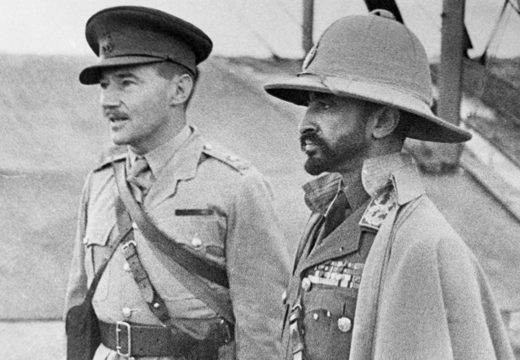Battle of the Atlantic
- The British submarine Tigris sinks the French steamers Jacobsen (523t) off Bayonne and Guilvenic (3181t) 60 miles west of St Nazaire.
- U-69 sinks the British steamer Empire Blanda (5693t), straggling behind Convoy HX-107, south of Iceland with the loss of the entire crew of 40.
- U-103 sinks the Norwegian steamer Benjamin Franklin (7034t), also straggling behind Convoy HX-107, south of Iceland. The crew of 36 is picked up by the Egyptian steamer Memphis.
- The German 1st MTB Flotilla sorties against the British east coast and S-102 sinks the British steamer Algarve (1355t) near the Sheringham Light Float with the loss of the entire crew.
- The British steamer Gracia (5642t) and the British tanker Housantonic (5559t) are sunk by German bombing south of the Faroe Islands. The entire crew of the Gracia is rescued. 3 are lost from the Housantonic.
The Blitz
This night is the first of 3 consecutive night raids on Swansea.
[Britain, Planning
Anthony Eden meets Wavell and Gen Alan Cunningham in Cairo to discuss British involvement in Greece.
[Italian East Africa
Emperor Haile Selassie, who was brought back to Abyssinia in January to help organize resistance to the Italians, arrives at Dangilla along with Wingate's Gideon Force. During the next two weeks they harass the Italian troops around Bahrdar Giorgis and Burye with considerable success. The Italians have four brigades in the area and the Gideon Force is only 1,700 strong.
Exiled Emperor of Ethiopia Haile Selassie |
 |
Far East
Troops of the Australian 8th division begin landing at Singapore.
[Greece
British Foreign Minister Eden, Dill (the Chief of the General Staff) and the local commanders, Wavell and Cunningham, meet in Cairo to discuss whether they can send help to Greece and if so how much. The British political leaders are strongly in favor of sending all that can be spared and Wavell, the military commander who is responsible, believes that this can be done effectively and is, therefore, prepared to recommend it.
[